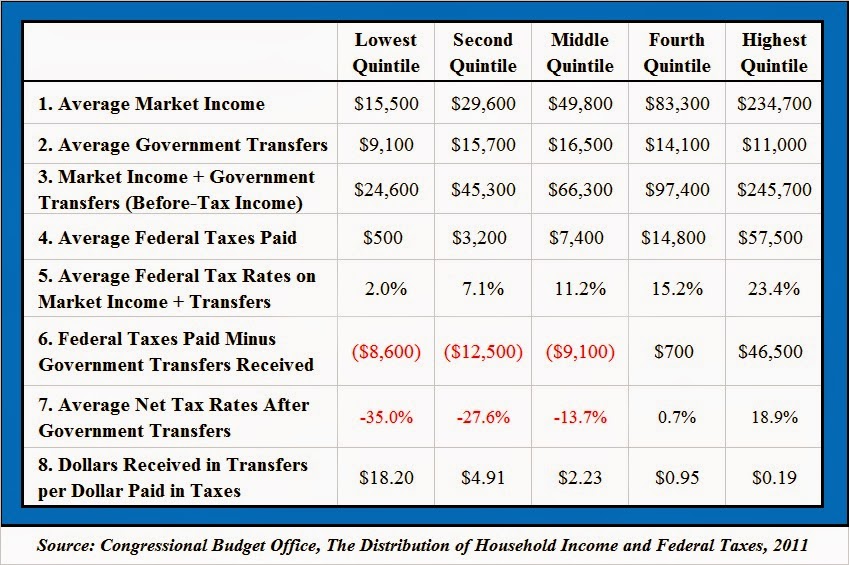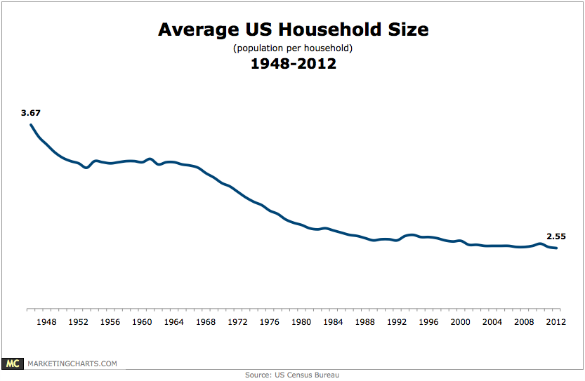My friend Jay was even more efficient. His quote was, "possessions possess".
https://www.youtube.com/watch?v=hYLBoAcRJWw
My friend Jay was even more efficient. His quote was, "possessions possess".
Ouch.
Can I quote you?
Why is education failing?



Why have we become a "consumer society"?
Why has wealth migrated to the upper 0.1%? Because wealth buys politicians who write tax and fiscal policy

.jpg)

http://www.theatlantic.com/business...axes-really-are-unusually-progressive/252917/U.S. Taxes Really Are Unusually Progressive
Income taxes in America are more progressive than in other rich countries--according to an authoritiative official study which, to my knowledge, has not been contradicted. The OECD's report "Growing Unequal", on poverty and inequality in industrial countries, includes a table that provides two measures of income tax progressivity in 2005. This is evidently the source of de Rugy's numbers. Here they are in an excel file. According to one measure, America's income taxes were the most progressive of the 24 countries in the sample, except for Ireland. According to the other, they were the most progressive full stop. (A more recent OECD report, "Divided We Stand", uses different data, a smaller sample of countries and a different measure of progressivity: the results are similar.)
and as policy shifts tax burden to the lower and middle classes from the wealthy, it give the wealthy even greater influence over the policy-makers, creating a vicious cycle creating wealth redistribution from the poorer to the rich.
The median usual weekly earnings of foreign-born full-time wage and salary workers were $681 in 2015, compared with $837 for their native-born counterparts. (See table 5.)
In 2015, there were 26.3 million foreign-born persons in the U.S. labor force, comprising 16.7 percent of the total
From 2014 to 2015, the unemployment rate of the foreign born declined from 5.6 percent to 4.9 percent, and the jobless rate for the native born fell from 6.3 percent to 5.4 percent.





These days, an investment banker may marry another investment banker rather than a high school sweetheart, or a lawyer will marry another lawyer, or a prestigious client, rather than a secretary. Whether measured in terms of income or education, there are more so-called power couples today than in the past, one manifestation of a phenomenon known as assortative mating, or more generally the pairing of like with like.
...
Money and talent become clustered in high-powered, two-earner families determined to do everything possible to advance the interests of their children. There is some long-term benefit for society, since many innovators and business creators will receive their initial boosts early in their lives, including the very best training in childhood, and that may enhance their eventual productivity.
But there are also serious economic costs. As it becomes harder for many people to “marry up” as a path for income mobility for themselves or their children, families that are not well connected may feel disengaged, and the significant, family-based advantages for some children may discourage others from even trying.
The numbers show that assortative mating really matters. One study indicated that combined family decisions on assortative mating, divorce and female labor supply accounted for about one-third of the increase in income inequality from 1960 to 2005. That result is from the economist Jeremy Greenwood, a professor at the University of Pennsylvania, and other co-authors.
A study of Denmark by Gustaf Bruze, a researcher at the Karolinska Institute in Stockholm, showed that about half of the expected financial gain of attending college derived not from better job prospects but from the chance to meet and marry a higher-earning spouse.
In particular, if matching in 2005 between husbands and wives had been random, instead of the pattern observed in the data, then the Gini coefficient would have fallen from the observed 0.43 to 0.34, so that income inequality would be smaller. Thus, assortative mating is important for income inequality.
Sorry, changed the sig again. Fame is fleeting, no?
Define "failing".
